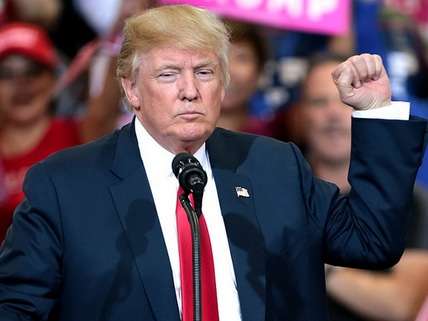Trump Will Announce His SCOTUS Pick Around Inauguration, Says Reince Priebus
"Certainly by the time we get to inauguration, either shortly before or shortly thereafter, we'll reveal the name of who our nominee will be."

In an interview this week with conservative radio host Hugh Hewitt, Reince Priebus, the incoming White House chief of staff for president-elect Donald Trump, revealed a possible timetable for when Trump will announce his pick to replace the late Justice Antonin Scalia on the U.S. Supreme Court.
"I think that's going to be something that we're going to start after the new year," Priebus told Hewitt. "And certainly by the time we get to inauguration, either shortly before or shortly thereafter, we'll reveal the name of who our nominee will be."
During his presidential campaign, Trump floated the names of 21 possible candidates that he said he would consider naming to the High Court. "This list is definitive and I will choose only from it in picking future Justices," Trump insisted back in September.
Let's assume Trump keeps his word and selects one of those names next month. What will that mean for the future of the Court?
The answer depends entirely on the name he picks. One of Trump's shortlisters is Justice Don Willett of the Texas Supreme Court, a libertarian legal hero whose judicial record includes a spirited defense of economic liberty and a sharp indictment of asset forfeiture abuse. Another Trump shortlister is Judge Diane Sykes of the U.S. Court of Appeals for the 7th Circuit, the author of a key opinion affirming the First Amendment right to record the police.
That's the good news. The bad news is that another one of Trump's shortlisters is Judge William Pryor of the U.S. Court of Appeals for the 11th Circuit. Pryor is an advocate of judicial deference, the legal philosophy that says the courts should respect the decisions of the democratically accountable branches of government and therefore uphold most government actions. This view has led Pryor to praise the New Deal era Supreme Court for its decisions upholding state and federal regulatory power, including broad congressional power under the Commerce Clause. According to Pryor, "not every controversy requires a judicial resolution or trumping of the will of the majority."
Needless to say, there are some big differences in the judicial philosophies of these candidates. We'll find out soon where Trump and his advisers stand.



Show Comments (34)